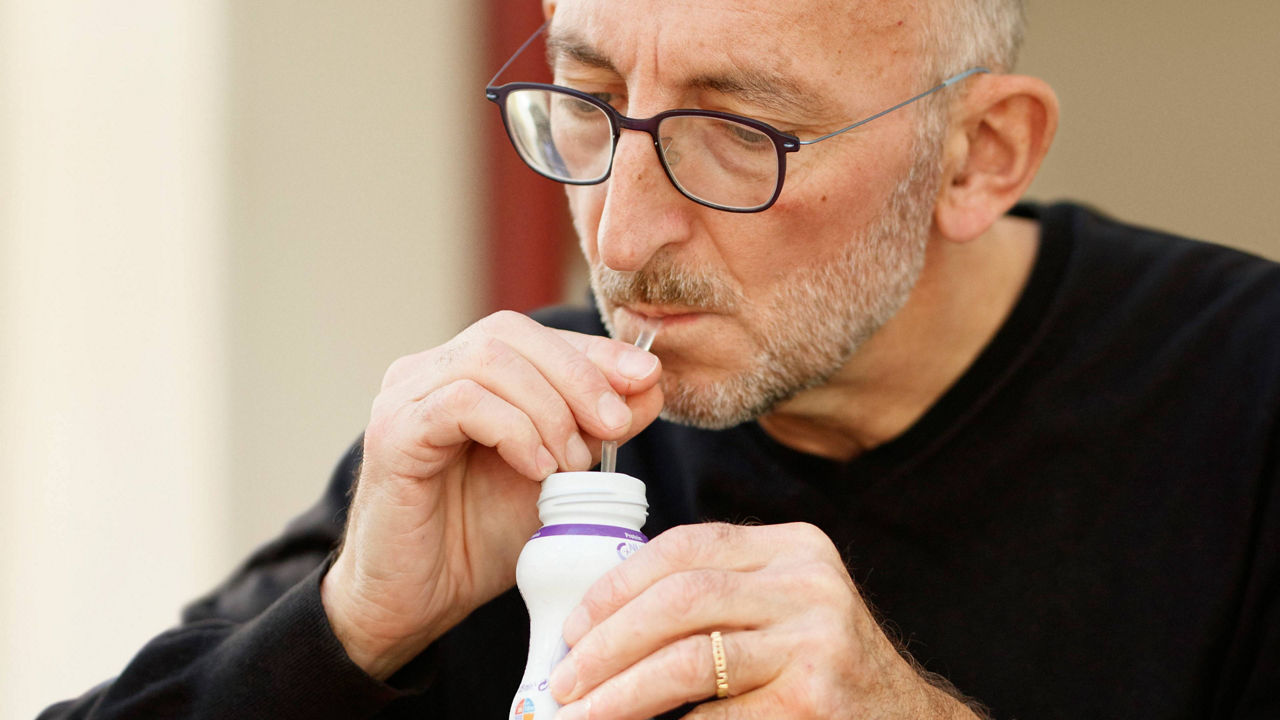What is cancer cachexia?
Losing weight can be seen as a good thing, especially for those who have always struggled to manage their weight - but when undergoing cancer treatment is not the right time. This is because when cancer patients lose weight, they mostly lose the strong, protective muscle tissue needed to help fight cancer, rather than fat tissue6. This loss of muscle tissue (or ‘lean body mass’) is known as cachexia6. Cachexia can lead to mental and physical tiredness but also, perhaps more importantly, can lower a patient’s tolerance to their treatment which could negatively affect their chances of survival1,6.
How does a patient’s body mass index affect treatment success?
The optimal chemotherapy dose for a patient is based on, amongst other factors, weight and height, also known as body mass index (BMI). Any changes in a patient’s weight from when they were first diagnosed can have a direct and negative impact as the patient may no longer be able to tolerate the full dose; more seriously, a significant reduction in BMI could delay treatment altogether7-9. By maintaining good nutritional intake, patients can help reduce the risk of losing additional muscle weight in the future, helping to ensure the body can tolerate the optimum treatment dose.
What nutrients are most important in cancer?
Good nutrition is all about getting the balance right - the balance of nutrients that a patient’s body needs to function well, to cope with treatment and to keep as active as possible. However, in cancer, some nutrients are particularly important:
- Protein: important for building and repairing body cells, getting enough protein is important for cancer patients wanting to maintain or regain lean body mass. International guidelines recommend cancer patients consume almost twice the amount that a healthy person needs (>1g of protein/kg of body weight and preferably 1.5g/kg vs 0.75g/kg for the general healthy population)10
- Omega-3 polyunsaturated fatty acids: with anti-inflammatory properties, this nutrient can help stabilize or improve appetite, food intake, lean body mass and body weight10
- Micronutrients, such as vitamins, minerals and trace elements: cancer patients often have micronutrient deficiencies due both to reduced food intake and the aggressive nature of some treatments11,12
- Dietary fibre: essential to a balanced diet, cancer patients can benefit from consuming the right quality of fibre to improve stool consistency, especially those who are suffering from diarrhoea as a side effect of their radiotherapy or chemotherapy13
What to do if you are struggling to eat or losing weight?
If a cancer patient is struggling to eat and drink, has lost weight unintentionally, or has concerns about their diet, they should talk to their healthcare professional. It is important to remember that they don’t need to wait to be asked about their concerns. It is ok to start the conversation with the oncologist and the supporting healthcare team.
Medical nutrition is important to keep the body strong
If after dietary counselling by a qualified healthcare professional a patient is still struggling to eat and drink and/or maintain weight, they may be advised to start taking medical nutrition supplements, also known as oral nutritional supplements (ONS). Medical nutrition (or ONS) are specially designed foods and drinks that help people with disease-related malnutrition meet their nutritional needs, providing the extra energy, protein, vitamins and minerals they need. They are known as ‘foods for special medical purposes’ and should be used under medical supervision.
Medical nutrition, particularly if given to patients early in their cancer journey, has been clinically proven to reduce weight loss. This is important to continue cancer therapy and is therefore related to better treatment outcomes14. Medical nutrition is available in a range of flavours and formats including milkshakes, juice style, yoghurt style, powders and desserts.




